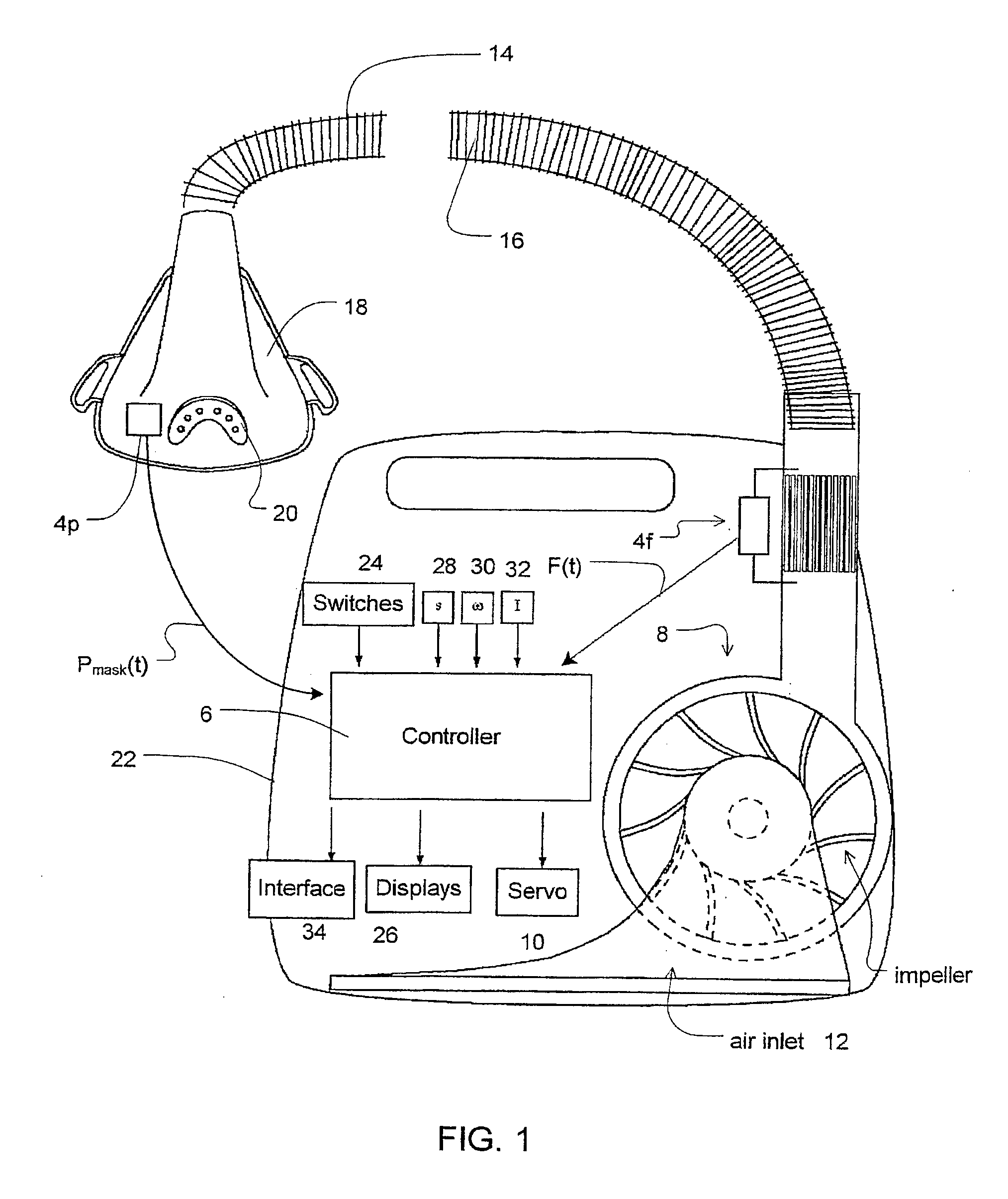Session by-Session Adjustments of a Device for Treating Sleep Disordered Breathing
- Summary
- Abstract
- Description
- Claims
- Application Information
AI Technical Summary
Benefits of technology
Problems solved by technology
Method used
Image
Examples
Embodiment Construction
[0027]In reference to FIG. 1, mask flow is measured using a flow sensor 4f and / or pressure sensor 4p with a pneumotachograph and differential pressure transducer or similar device. A flow signal F(t) is derived and mask pressure is measured at a pressure tap using a pressure transducer to derive a pressure signal Pmask(t). The pressure sensor 4p and flow sensor 4f have only been shown symbolically in FIG. 1 since those skilled in the art would understand how to measure flow and pressure. Flow F(t) and pressure Pmask(t) signals are sent to a controller or microprocessor 6 which then determines how to adjust the blower. Alternatively, it is preferred that a flow signal f(t) and pressure signal Pmask(t) be estimated or calculated in relation to the blower motor by monitoring power supplied to the motor and / or the speed of the motor as disclosed in U.S. Pat. Nos. 5,740,795, 6,332,463 or 6,237,593, without the provision of flow and pressure sensors as described above.
[0028]The controller...
PUM
 Login to View More
Login to View More Abstract
Description
Claims
Application Information
 Login to View More
Login to View More - R&D
- Intellectual Property
- Life Sciences
- Materials
- Tech Scout
- Unparalleled Data Quality
- Higher Quality Content
- 60% Fewer Hallucinations
Browse by: Latest US Patents, China's latest patents, Technical Efficacy Thesaurus, Application Domain, Technology Topic, Popular Technical Reports.
© 2025 PatSnap. All rights reserved.Legal|Privacy policy|Modern Slavery Act Transparency Statement|Sitemap|About US| Contact US: help@patsnap.com



